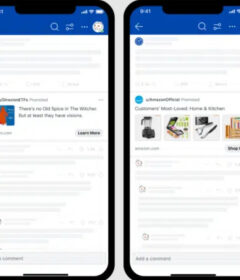3 ways Google ensures safe online shopping

Looking for badges is one way shoppers can verify the validity of your store or listing.
- Vetting stores through automation
- Store badges
- Automated and human merchant and listing reviews
Automatically vetting product merchants. Before a product or merchant can list on Google, they must undergo a thorough safety review to ensure they meet standards. With the help of the Shopping Graph, a vast database of products and sellers, the systems can quickly evaluate the legitimacy of a business, ensure that the product information is accurate, and verify that the content adheres to Google policies.
These policies cover all products displayed in shopping results, including those obtained from web crawling. By following these policies, Google will ensure that the products you see meet standards and that you won’t come across items that violate the rules, such as violent weapons, merchants misrepresenting their businesses, or hateful content.
In January alone, Google prevented about 100 million product offers from being displayed and rejected nearly 300,000 accounts for quality issues or policy violations.
Store badges. Google offers store badges to businesses that are known to provide a positive shopping experience. The badges are awarded to stores that meet criteria for fast shipping, easy returns, high-quality websites, and excellent user ratings.
Google also displays ratings for both products and their various sellers, allowing you to learn from other shoppers’ experiences with those products and businesses. Additionally, the product listings link you directly to the merchant’s website, providing you with the opportunity to conduct further research about the store and its policies. This is so you can make informed decisions about your purchases and ensures that you are shopping with confidence.
Automated and human reviews for merchants and listings.
“Our automated systems are always monitoring for violating activity, and our team of human reviewers is on standby to review issues that might need a more nuanced perspective.”
Once merchants have been onboarded, Google will continue to monitor listings to ensure that nothing has changed in a suspicious or problematic manner since their initial inclusion on Google. For example, if a merchant met country-specific requirements for selling alcohol during onboarding, they periodically verify that those qualifications are still being met.
Google will also take various actions when they detect suspicious behavior, including removing suspicious listings that violate policies or banning a merchant from listing on Google.
Dig deeper. You can read the announcement from Google here.
Why we care. These efforts can directly impact advertisers ability to reach potential customers through Google’s advertising platforms and search results.
When customers feel secure shopping on Google, they are more likely to make purchases and interact with the merchants and products advertised on the platform. Advertisers and SEOs can take advantage of this trust by ensuring that their advertising and product listings meet Google’s policies and requirements. By adhering to these standards, they can earn store badges, improve their visibility, and increase the chances of attracting new customers.
By complying with Google’s policies and guidelines, advertisers and SEOs can avoid having their products or listings removed or being banned from the platform altogether. This would undoubtedly harm their ability to reach customers and affect their overall business goals. Therefore, it is essential for advertisers and SEOs to stay up-to-date with Google’s policies and make sure that their advertising and listings adhere to these standards.


